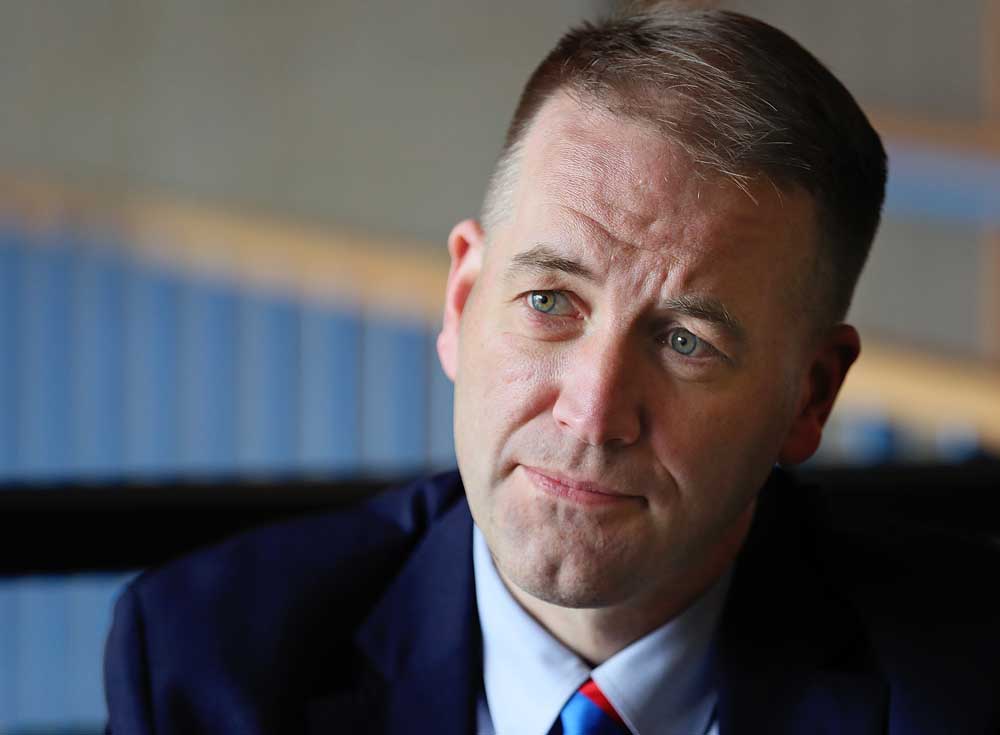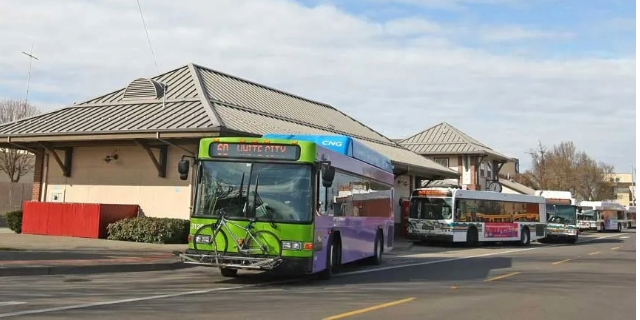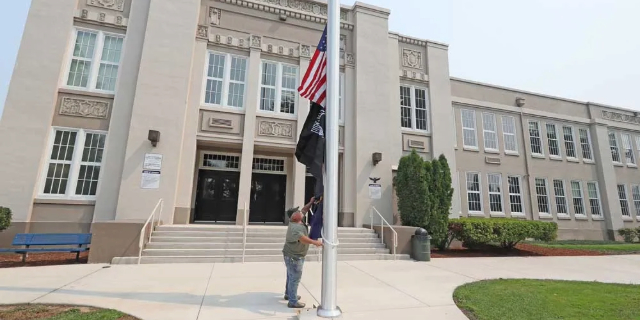Tobias Read supports Trump ballot decision, touts accomplishments as state treasurer
Published 5:00 pm Friday, December 1, 2023

- Oregon State Treasurer Tobias Read touched on two terms of accomplishments and how that experience prepares him for the race for Secretary of State during a wide-ranging interview Thursday at the Rogue Valley Times.
A familiar name in a crowded field of Democrats seeking to be the nominee for Oregon secretary of state said he supports the current secretary’s decision to allow Donald Trump on the Republican primary ballot.
State Treasurer Tobias Read said in an interview this week with the Rogue Valley Times that he agreed with Secretary of State LaVonne Griffin-Valade’s Thursday announcement that she will not bar the former president from appearing on the May 21, 2024, GOP primary ballot.
“I think the best way for us to uphold our democracy is to follow the law,” Read said. “To be clear, I have a lot of trouble with some of the actions of the former president, but that is not a reason to depart from the law.”
“The secretary of state’s job is to follow the law, and that’s what I would do as well,” Read added.
The sweeping interview was part of a whirlwind stop through Southern Oregon kicking off his secretary of state campaign. Read will face Democrat candidates James Manning of Eugene, Isaak McLemore of Wasco and David Stauffer of Portland on the May primary ballot. When asked what sets him apart from the other candidates, Read’s answer was simple.
“I’m the only one who’s been elected statewide twice — or once,” Read said. “Serving in a constitutional office for the last seven years, people don’t need to wonder about my approach to a statewide office … or an office of significant size and complexity with a high-stakes agenda.”
“I think it’s the skill and the expertise and the experience of being an executive that sets me apart from other people who might be running,” Read said.
In his two terms as state treasurer, Read said he’s sought to establish “a culture of openness, of transparency, of service and responsiveness.”
“We’re managing and investing $130 billion,” Read said.
That budget includes a host of legislative priorities and initiatives, such as Gov. Tina Kotek’s plans for another $600 million for housing and homelessness programs in the 2024 legislative session. That follows $217 million for housing and homelessness programs Kotek spearheaded in 2023.
Read said the state appears to have “moved from a spot” where there weren’t “sufficient resources” to address the homelessness problem.
“The question now — in my view — is to determine what’s most effective, and what should be sustained and what should be retired,” Read said. “What do we determine is not effective?”
Read said the question is one that bridges his expertise in the Treasury with the audit powers of the secretary of state’s office.
Read also touched on a “willingness and ability to try new things,” under his leadership of the state Treasury. He described a wide range of accomplishments in his two terms, such as the creation of OregonSaves, “the country’s first opt-out state retirement savings program.” Since 2017, Read said that OregonSaves has created IRAs for 120,000 workers in Oregon who otherwise wouldn’t have retirement accounts.
Workers are free to cash out their IRA or decline to participate in the program, but Read said that “most people stay in … and are on their way to the kind of retirement that they want.”
“We’re the first in the country to do that, no one had ever done that before,” Read said. “The Treasury, we did that — that’s the difference between passing a bill and actually executing and implementing.”
He also touted a host of improvements to the state’s unclaimed property website and protocols since the Treasury took the reins of the program from the Department of State Lands. The Treasury simplified the website, unclaimed.oregon.gov, and peeled away layers of bureaucracy before handing over sums that often fall below $100.
“It’s not life-changing money, but it’s yours,” Read said.
He also oversaw the construction of a new Treasury office in Salem last year that the New York Times called a “Super Building for Fragile Times.”
“It’s built to withstand every threat we can anticipate,” Read said.
The two-story building has a unique architectural design in which it’s barely attached to the ground in order to significantly reduce shaking in an earthquake. The story also describes diesel generators, battery, backup water and sewage systems that allow the building to go into “full island mode.”
Read said that those measures may seem excessive, but they’re necessary to ensure everything stays online after a disaster.
“Treasury has to be operational for us to accept federal money or disperse money,” Read said. “Nothing happens money-wise without Treasury operational, so that’s why that building really matters.”







